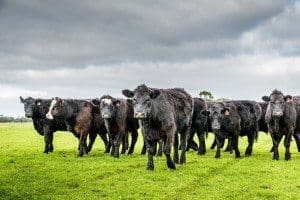With rural property transactions getting back into swing following the holiday period, it is appropriate to consider some legal issues that might be reviewed before committing to an acquisition.
Consideration of these could prevent surprise, save on costs and perhaps discover where the treasure is ‘buried’.
Here are some points to consider before a purchase is completed:
 Property included: The status of the land needs to be understood and if crown lease then the terms of lease should be reviewed. What else is included/ excluded such as livestock, station plant, crop, water entitlements, paddock records, licences and other interests.
Property included: The status of the land needs to be understood and if crown lease then the terms of lease should be reviewed. What else is included/ excluded such as livestock, station plant, crop, water entitlements, paddock records, licences and other interests.
Crown leasehold – identity of the buyer: Following amendments to the Land Act most restrictions on a buyer entity have been removed and therefore use of companies, trusts and other entities are able to be utilised.
Funding: Financial institutions are now taking significantly longer for approval of funding arrangements. Sufficient time needs to be allowed in order to sort satisfactory terms including security arrangements, interest rates, fees, repayment terms and any special conditions.
GST and extra stamp duty: Advice should be sought in order to ensure the GST implications of any proposed acquisition are properly identified and any exemptions or concessions properly claimed. If GST exemptions are claimable then this has the benefit of potentially reducing stamp duty, which is payable on the GST inclusive purchase price. Most rural property transactions can be structured to include at least some GST-free supplies, for instance supplies of going concerns, water and/or farmland.
Land tax: With increasing scrutiny by the revenue authorities on land tax, if freehold land is being acquired then consideration should be given to whether the proposed owner will be eligible to claim the primary production land tax exemption. Broadly, the exemption will not be available if land is held either directly or indirectly by public companies or foreign companies. The issue can also arise with a trust if a beneficiary is living overseas and regarded as a ‘absentee’ for land tax purposes. Often potential issues can be minimised by seeking advice upfront to understand what the likely land tax position will be.
Foreign residents capital gains withholding: If the purchase price of the land is $2,000,000 or more provision will need to be made in the contract for the seller to obtain a clearance certificate from the Australian Tax Office (ATO), which indicates the ATO is satisfied the seller is an Australian resident. If a clearance certificate is not provided to the purchaser at or before settlement, then the purchaser is obliged to withhold 10% on payments otherwise payable to the seller and pay that amount to the ATO.
FIRB requirements: FIRB requirements have changed significantly in the last 12 months, and can be easily triggered – for instance by Australian companies with only 20% ownership interests held by nonresidents (either directly or indirectly) or by Australian discretionaly trusts with potential non-resident beneficiaries. If 42690525v1 | Rural acquisition issues 2 FIRB approval is required then there are different requirements depending on whether agricultural land or an agribusiness is being acquired. Seeking advice so as to understand FIRB requirements prior to signing any contract is essential to ensure implications are understood and if possible appropriately managed.
Insurance: Consideration needs to be given to the party bearing the risk of damage to property and public risk during the contract phrase in order insurance can be considered.
Minister’s Consent to Crown Leases: As a result of removal of most ownership restrictions the obtaining of the Minister’s Consent is now a relatively quick and straightforward process. A period of 14-21 days should be allowed.
Early possession – representative residing on the land: This might be considered for monitoring of livestock and other movements, preparation of cropping land and some improvements being reviewed to identify capital requirements.
Valuation: If a buyer is not familiar with the market value of certain items to be included in the purchase (such as water rights), then valuation advice is recommended.
Other due diligence: This might involve review of what is proposed to be included in the purchase, checking adequacy of infrastructure and potential liabilities to be assumed from the Seller.
Third Party Interests: Any existing interests such as mining, petroleum and native title should be understood.
Livestock: The method of delivery needs to be determined such as a muster and count or walk-in walk-out.
Seeking legal and other advice prior to signing contract documents is the key to ensuring the sale process is properly handled.
 * Rodney Bell is a Partner and Specialist Agribusiness Lawyer with McCullough Robertson Lawyers, Brisbane. He can be contacted on 07 3233 8936.
* Rodney Bell is a Partner and Specialist Agribusiness Lawyer with McCullough Robertson Lawyers, Brisbane. He can be contacted on 07 3233 8936.



HAVE YOUR SAY